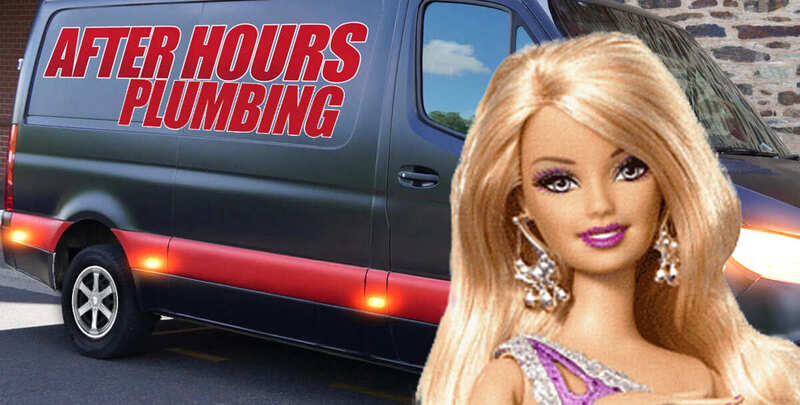What Causes a Leaking Shower Head?

A leaking shower head is a common household issue that can lead to unnecessary water wastage and higher water bills. Understanding what causes a leaking shower head is essential for both quick fixes and long-term solutions.
A dripping shower head might seem minor, but it can signal underlying problems like worn-out rubber washers, mineral deposits, or issues with the shower valve. Addressing these leaks promptly can prevent further damage to your bathroom walls and the entire house.
In this article, we will explore the common reasons why this might happen and provide practical tips to fix a leaking shower, ensuring yours stays leak-free and efficient.
Understanding the Various Parts of the Shower Head
To effectively address a leaking shower head, it’s helpful to understand its various parts.
The shower head itself is the part where water flows out. It typically contains nozzles that can become clogged with mineral deposits. The rubber washer and O-ring are small components within the shower head that help create a watertight seal, preventing leaks.
The shower arm connects the shower head to the plumbing system and can sometimes develop leaks at the connection points. And there is the shower valve, which controls the water flow and temperature; issues here can cause persistent drips. Familiarising yourself with these parts can make diagnosing and fixing a shower leak easier and more effective.

Common Causes of a Dripping Shower Head
Several factors can contribute to your shower head dripping. Understanding these common causes can help you identify and fix the problem quickly:
- Worn-out rubber washers and O-rings: Much like a leaking kitchen tap, these smaller parts can degrade over time, resulting in your shower leaking.
- Mineral deposits: Hard water can leave mineral deposits that clog the shower head, causing water to leak from the nozzles.
- Faulty shower valve: Issues with the shower valve can result in water dripping from the shower head even when it’s turned off.
- Loose or damaged shower arm connections: If the connections are not secure or are damaged, water can leak.
Identifying why your shower head leaks is the first step in fixing your leaking showerhead and ensuring it operates efficiently.
Identifying the Source of the Leak
Identifying the source of the leak is crucial in effectively fixing a leaking shower head.
Start by examining the shower head itself. If water drips from the nozzles even when the shower is off, the issue might be with the shower head or the shower valve. Next, check the shower arm connections for any visible leaks or signs of water damage. If the leak is persistent, inspect the shower valve and the rubber washers inside the shower handle. Sometimes, you might need the entire shower head removed for a closer inspection.
By pinpointing the exact source of the leak, you can determine the appropriate steps to fix your leaky shower head efficiently and prevent further water wastage.
DIY Solutions to Fix The Dreaded Shower Head Drip
Fixing the water leaks in a leaking shower head yourself can be straightforward with the right tools and steps:
- Gather necessary tools: Whether you need to make a trip to your local hardware store, or you have them in the shed, you’ll need an adjustable wrench, plumber’s tape, white vinegar, a new rubber washer, and an old toothbrush.
- Shut off the water supply: Turn off your mains water supply to avoid any water wastage down the shower drain during the repair.
- Remove the shower head: Use the adjustable wrench to gently unscrew the shower head from the shower arm.
- Clean mineral deposits: Soak the shower head in white vinegar to dissolve any mineral build-up. Use an old toothbrush to scrub away stubborn deposits.
- Replace the rubber washer: Check the rubber washer inside the shower head and replace it if it’s worn out.
- Reassemble the shower head: Wrap the plumber’s tape around the threads of the shower arm and screw the shower head back on securely.
These DIY solutions can help you fix a leaking shower head efficiently, saving you from potential water damage and high water bills.
When to Replace Your Leaky Showerhead
Knowing when to replace your shower head is important for maintaining efficient water flow and avoiding leaks. If your dripping showerhead is older and consistently leaking despite replacing the rubber washers and cleaning mineral deposits, it might be time to replace it.
Look for cracks or signs of wear and tear, especially around the connections. Modern shower heads offer better water pressure and can be more water-efficient, helping reduce your water bill. You can find a wide range of shower heads at most hardware stores, catering to various needs and preferences. An upgrade will not only fix the leaky shower head issue, but also enhance your overall shower experience.
Preventative Measures to Avoid Future Leaks
The most effective way to prevent future leaks in your shower head is with regular maintenance and simple checks. These include:
- Regularly clean the shower head: Soak it in white vinegar to remove mineral deposits and keep water flowing smoothly.
- Inspect rubber washers and O-rings: Check these components periodically and replace them if they show signs of wear.
- Monitor water pressure: High water pressure can damage your shower head and cause leaks; use a pressure regulator if necessary.
- Check connections: Make sure the shower arm and other connections are tight and secure.
- Turn off the water properly: Make sure the shower valve is fully closed after each use to avoid constant dripping.
These preventative measures can help you avoid future leaks. They will help to prolong the life of your shower head, and maintain efficient hot water flow.

When You Need a Plumber to Fix Your Shower
Sometimes, DIY fixes aren’t enough, which means you’ll need a plumber to fix your shower.
If your leading showerhead persists despite replacing rubber washers and cleaning mineral deposits, the issue might be with the shower valve or internal plumbing. Leaks from the shower arm or behind the bathroom walls can indicate more serious problems that require professional attention. Additionally, if you notice water damage, dry rot, or persistent low water pressure from leaking showers, it’s best to call a plumber.
A professional can accurately diagnose and fix the leak, ensuring your entire shower system is in good condition. Hiring a plumber not only resolves the current issue but also helps prevent future leaks and potential water damage to your home.
Keep Your Showers Leak-Free and Efficient
Addressing a leaking shower head promptly is crucial to save water, reduce your water bill, and prevent potential water damage to your bathroom and plumbing system. By understanding what causes a leaking shower head, you can take the necessary steps to fix the issue.
Regular maintenance, such as cleaning mineral deposits and inspecting rubber washers, can prevent future leaks. If DIY solutions to fix leaking showers don’t work, don’t hesitate to call a plumber to fix your shower professionally.
Ensuring your shower head and entire shower system are in good condition not only enhances your shower experience but also protects your home from water-related issues. Keep your showers leak-free and efficient with these practical tips and solutions.
Please note: Thanks for reading our blog article “What Causes A Leaking Shower Head?”. This information is provided for advice purposes only. Regulations differ from state to state, so please consult your local authorities or an industry professional before proceeding with any work. See After Hours Plumbing’s Terms & Conditions here.
